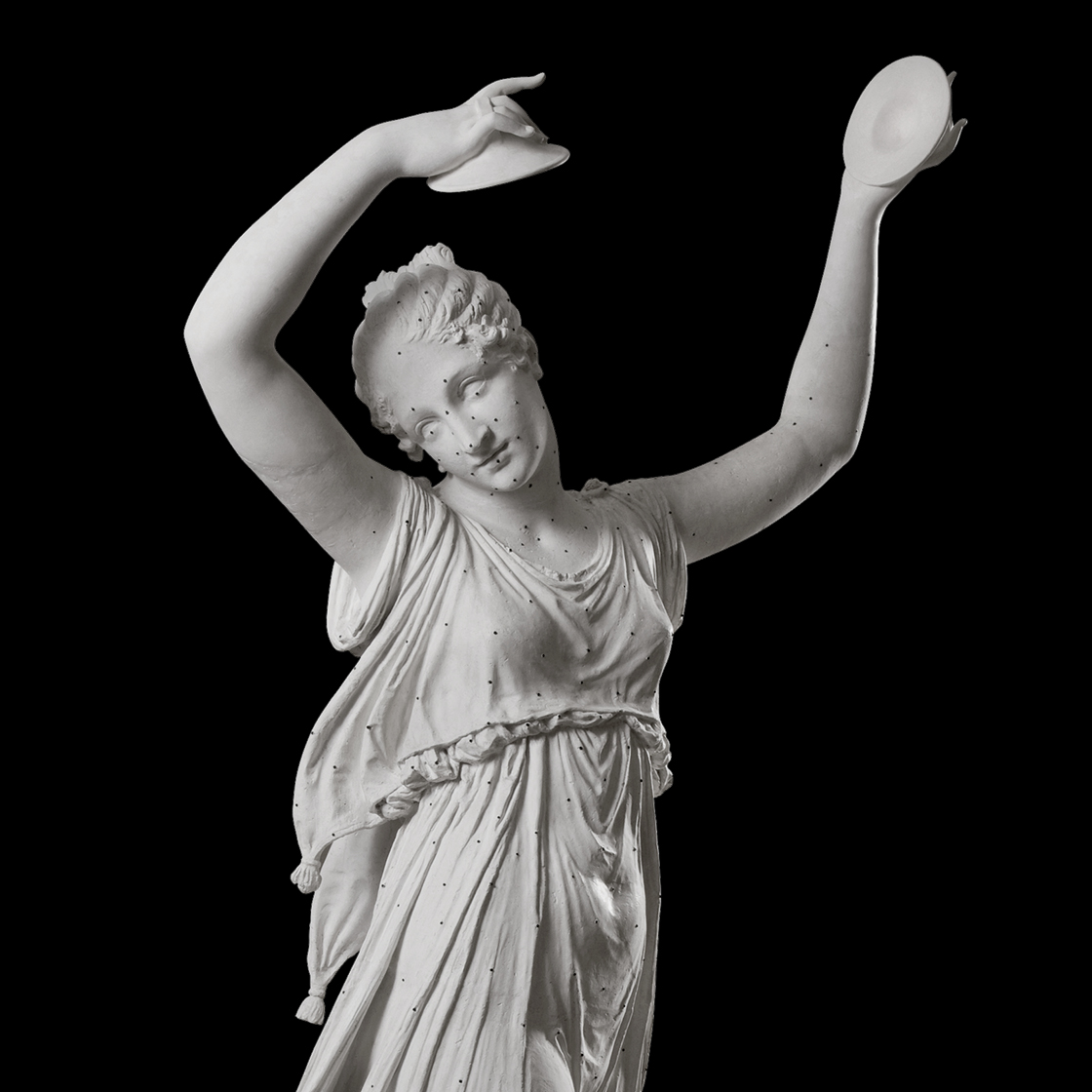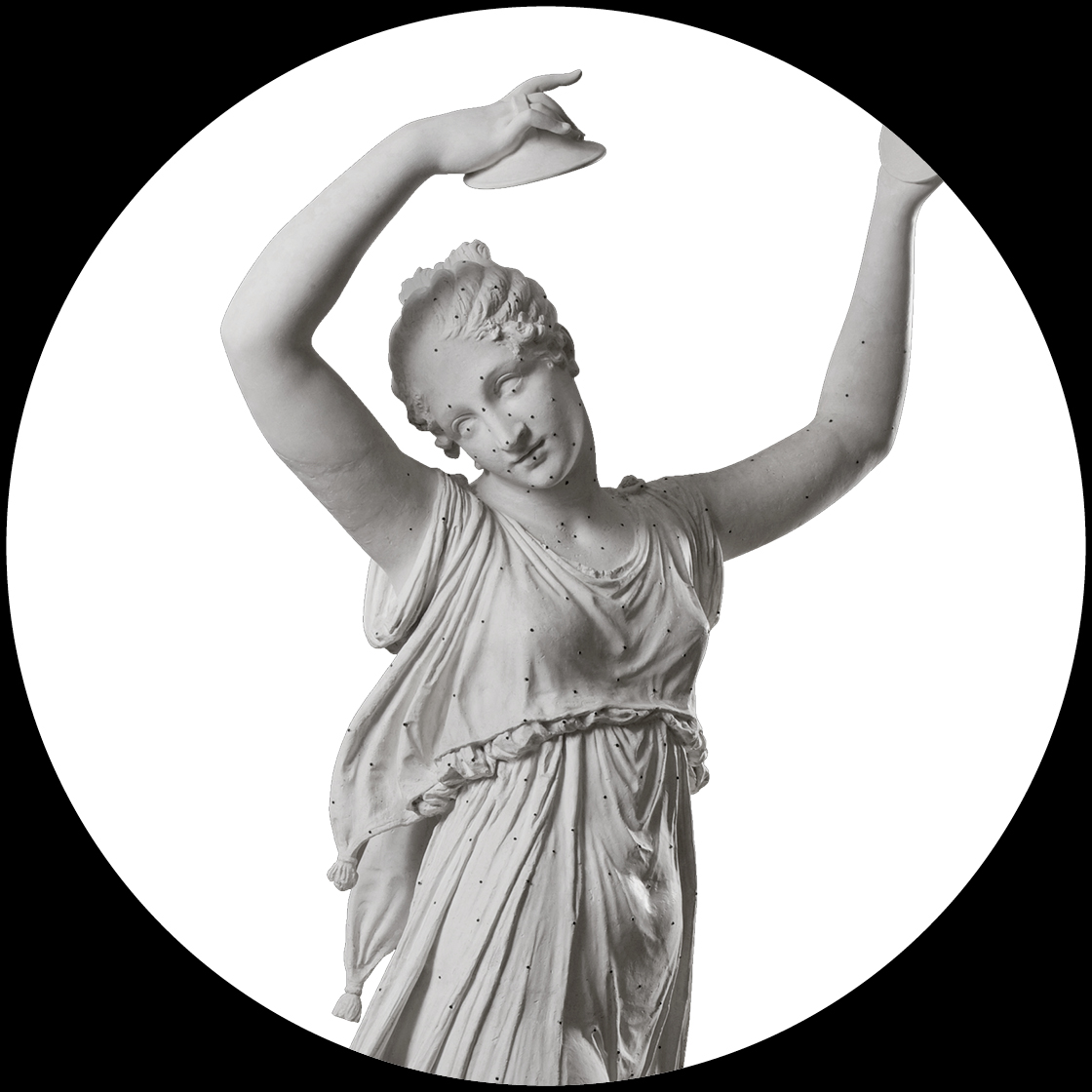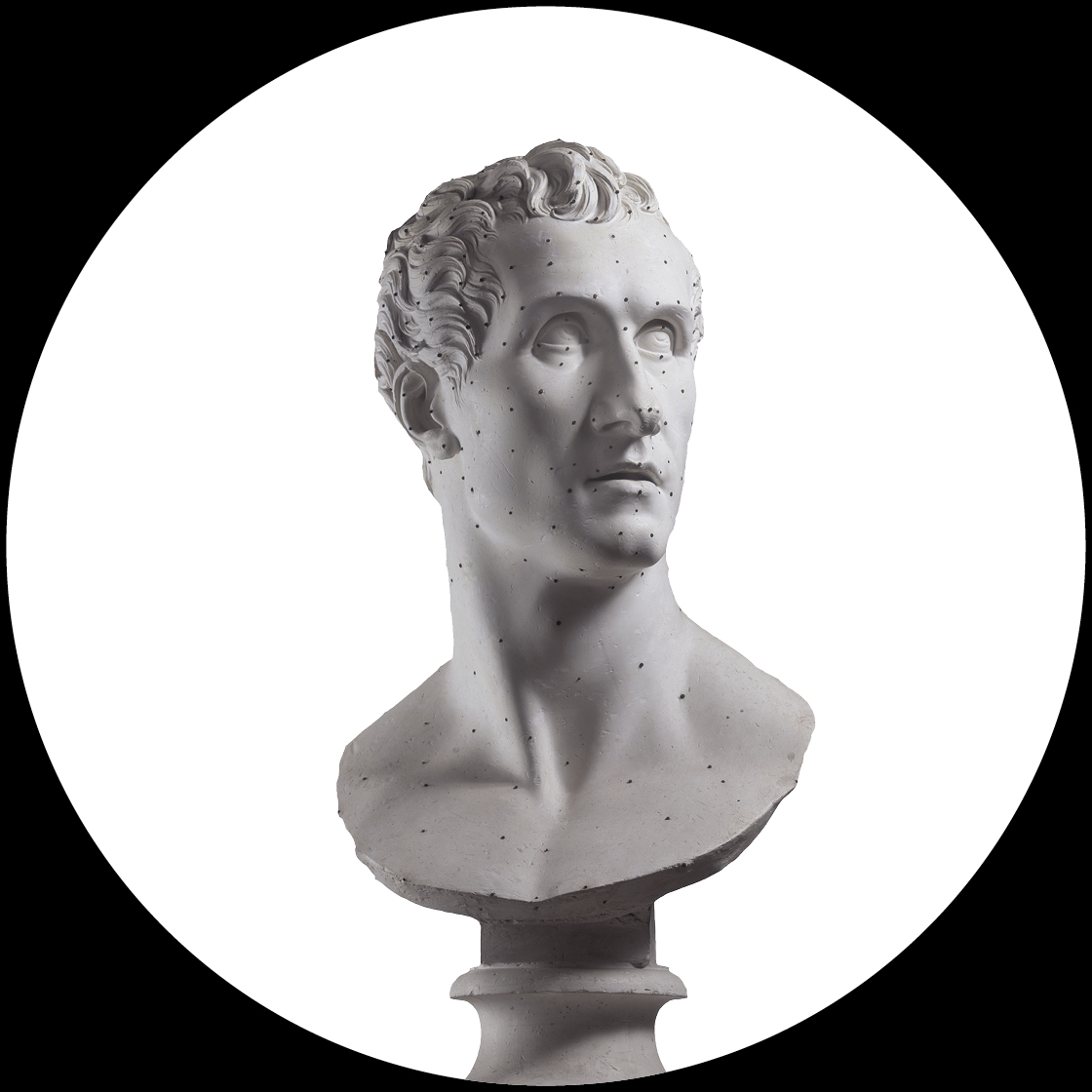Antonio Canova
Dancer with Cymbals
1812
Plaster
Location:
Gypsotheca, Scarpa wing
Dance, that seeks beauty through movement, became the Neoclassical image of grace par excellence. The repetition of dancing figures in Canova’s repertoire is testament to the artist’s interest in studying movement. Being the privileged theme it is, he applied it in several statues of goddesses, mythological figures, reliefs, drawings, and temperas that present a remarkable variety of movements and dance poses. While temperas were more experimental, aimed at studying the rhythmic linear components, the marble ballerinas represent a more challenging research and plasticity. Dancer with Her Hands on Her Hips, Dancer with Her Finger to Her Chin and Dancer with Cymbals are a trinity that represent the sublime myth, one of the pillars of 17th century aesthetics. With unmatched mastery, the artist relieves himself from the subjection of gravity by elegantly lifting the ballerinas from the ground. Dancer with Cymbals has an original marble high base which is fundamental to increase the illusion of the figure moving. The young girl is caught in the midst of a dance move, she is wearing sandals and with her fingers is delicately grasping the cymbal to start playing. Her body, firm on the tips of her foot, extends upwards almost as if it were following the sound coming from her instrument, her head is tilted towards her shoulder and is listening to the last vibrations, and her figure transpires under the refined and thin dress.
Due to the Great War the marble sculpture was basically destroyed, however, during its restoration it was possible to reconstruct the upper part of her body and the cymbals, that were completely devasted. The marble piece was realized between 1809 and 1812 for Russian Ambassador Andrei Razumovskij, notorious music connoisseur, and is now preserved in the Bode Museum in Berlin.
● Inventory Number
198
● Dimensions
187x80x55 cm
● Ownership
Fondazione Canova onlus, Possagno (TV)
● Marble
Berlin (DE), Staatliche Museen






